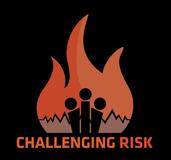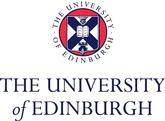- Tiziana Rossetto (Principal Investigator)
Professor Tiziana Rossetto joined UCL in 2004. She founded and directs the EPICentre research group (EPICentre, www.epicentreonline.com), which is a multidisciplinary research group looking at topics of earthquake and tsunami risk. She also directs the MSc Earthquake Engineering with Disaster Management which she founded in 2006.
From 2009-2011 Prof Rosetto helped establish and co-directed the EngD Centre in Urban Sustainability and Resilience. The main focus of her personal research, has been the development of empirical and analytical methodologies for the derivation of vulnerability curves, which can be used to predict the probable damage in structures during an earthquake.
Tiziana has undertaken a number of field missions to assess damage to buildings and infrastructure in earthquake zones including the L'Aquila earthquake 2009, Wenchuan, China earthquake of 2008, the Kashmir Earthquake of 2005, the Sumatra Earthquake and Tsunami 2004, and the Bhuj Earthquake, India 2001.
- Luke Bisby (Co-Investigator)
Professor Luke Bisby is the Arup Chair of Fire and Structures, and RAEng Research Chair, within the BRE Centre For Fire Safety Engineering at the University of Edinburgh. He is also Honorary Professor of Civil Engineering at University College London and Adjunct Associate Professor of Civil Engineering at Queen’s University, Canada.
Prof Bisby has extensive experience in experimental methods for structural fire safety engineering. He is interested various aspects of structural fire engineering, with particular emphasis on reinforced concrete buildings and tunnels, uses of fibre reinforced polymers (FRP) in civil engineering applications, unbonded post-tensioned concrete structures, and the effects of fire and thermal cycling on novel structures and materials. Current research includes: holistic engineering of structures to resist and survive fires, rehabilitation and/or upgrading of reinforced concrete structures using FRP, the use of FRPs in new construction applications, and test methods and numerical modelling to simulate the fire behaviour of structures and materials.
Prof Bisby is also interested in socio-technical aspects of fire safety engineering expertise and regulation, as well as probabilistic methods to quantify the fire safety of the built environment.
- David Rush (Co-Investigator)
Dr David Rush is a Lecturer in Structural Engineering at University of Edinburgh, having graduated from his PhD from Edinburgh in 2013. His two principal research interests are; the resilient design of structures to fire including the probabilistic design of concrete structures for fire, with particular focus on the post-fire performance of concrete structure and elements; and the design and performance of intumescent fire protection coatings for real fires. His other research interests are the fire performance of concrete filled structural hollow sections and the communication of research through theatrical productions.
- Muki Haklay (Co-Investigator)
Muki Haklay is Professor of Geographical Information Science (GISc) in UCL’s department of Civil, Environmental and Geomatic Engineering and co-director of the Extreme Citizen Science (ExCiteS) research group. He works on a range of research projects that involve participatory mapping and science methods including Challenging Risk, in which he will be exploring citizens’ involvement in preparedness for earthquake and fire incidents.
Prof Haklay is an expert in Geographical Information Systems (GIS) and Geographical Information Science (GISc) and has worked extensively on acquisition, management and analysis of Geographical Information
His research interests include public access to environmental information and the way in which the information is used by a wide range of stakeholders, citizen science and in particular applications that involve community-led investigation, development and use of participatory GIS and mapping, and Human-Computer Interaction (HCI) for geospatial technologies.
- Helene Joffe (Co-Investigator)
Professor Helene Joffe's work investigates public engagement with risks such as earthquakes. Within EPICentre she worked on how those in highly seismic areas represent earthquakes and the link between these representations and how they prepare for earthquakes. A second strand of the work examines how publics represent earthquake prediction. This appears to be heavily shaped by cultural factors. All of her current work is interdisciplinary, and beyond earthquakes, it also explores how publics engage with climate change, wellbeing and a host of emerging infectious diseases.
- Gabriela Perez-Fuentes Ruiz (Research Associate)
Dr. Perez-Fuentes is a Postdoctoral Research Associate at the Division of Psychology and Language Sciences at UCL. She explores earthquake preparedness behaviours across cultures, earthquake risk and preparedness representations, as well as how cultural and emotional factors affect preparedness and resilience. Dr. Perez-Fuentes graduated from her PhD in Clinical Psychology from Adelphi University, New York (U.S.A), where she has worked for 10 years in the field of traumatic stress, resilience, and transcultural psychiatry.
- Ioanna Ioannou (Research Associate)
Ioanna joined UCL's EpiCentre in 2011 and is currently working on the Global Earthquake Model (GEM) project. Her research focuses on the empirical vulnerability assessment. In particular, the drafting of guidelines for the use of existing and the development of new empirical vulnerability relationships. Ioanna′s PhD focused on the quantification of uncertainty in seismic risk for a single building.
- Patrick Rickles (Research Associate)
Patrick is a Research Associate on the Challenging RISK project. His main focus is to develop bespoke GIS tools for the researchers to facilitate interdisciplinary understandings and community engagement.
Patrick obtained an MSc in Geographical Information Science (GIS) in 2005 from UCL's Department of Civil, Environmental and Geomatic Engineering and spent a number of years in industry working for Software Engineering, Oil and Gas, and Urban Planning companies, expanding his knowledge on various potential applications of GIS. His research interests include Interdisciplinary Research, Geospatial Education, and Web Development.
- Louise Francis (Research Assistant)
Louise studied environmental science (BSc, 2003), followed by studies in phylogenetics and biodiversity (MSc, DIC, 2006) at Imperial College London, in association with the Natural History Museum. She has a number of years’ experience working with a diverse range of grass-roots and civil society organisations in the UK and throughout the Caribbean.
Louise is Co-founder and CEO of the social enterprise, Mapping for Change. She is interested in the role of participatory mapping, VGI and citizen science in generating positive environmental and social change.
- Jose Melo (PhD Student)
Jose Melo is a Research Assistant in the Department of Civil, Environmental and Geomatic Engineering at University College London (UCL) and a PhD student at University of Aveiro in Portugal. His PhD program involves studying the influence of bond-slip in the performance of existing reinforced concrete structures subject to cyclic loading. This is an important issue because a large number of existing RC buildings structures were designed and built before mid-70's, when the reinforcing bars had plain surfaces and prior to the enforcement of the modern seismic-oriented design philosophies. His interests are: assessing and retrofitting of structures with seismic vulnerability, experimental analyses and non-linear RC structural modulation.
- Daniel Pohoryles (PhD Student)
Daniel Pohoryles is a PhD student in Earthquake Engineering. Before joining UCL, Daniel worked as a structural engineer at the London office of Peter Brett Associates LLP.
Daniel has a background in Chemistry, with a BSc from Imperial College, and has completed a Graduate Diploma and MSc in Civil Engineering at UCL. His thesis focused on the mitigation of seismic loading by devising an improved control algorithm for semi-active dampers.
Daniel’s research interest focuses on the retrofit of pre-1970’s reinforced concrete structures that were found to perform poorly under recent seismic events and are deemed particularly vulnerable. The aim of his PhD project is to evaluate different FRP (fibre-reinforced polymers) retrofit schemes by means of full-scale testing, in order to inform computational models and develop new empirical design formulae. A variety of novel monitoring techniques will be employed throughout the experiments.
- Gretchen Fagg (PhD Student)
Gretchen Fagg is an MPhil Candidate in the Extreme Citizen Science (ExCiteS) research group working on the Challenging RISK project working on community engagement and motivation. She has an extensive background in Disaster Planning and Management and seeks to apply those skills though implementation of digital technologies to empower individuals.
 Close
Close



